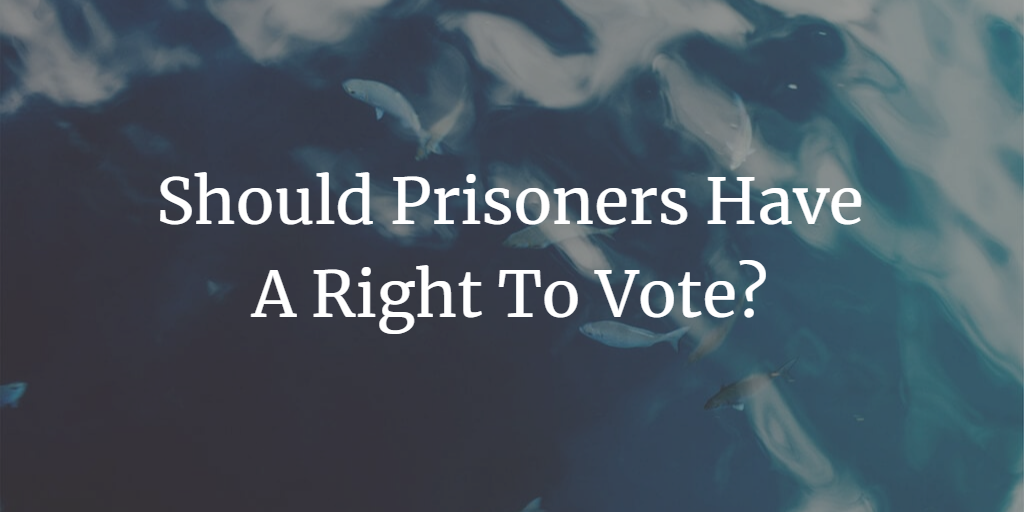Should Prisoners Have A Right To Vote?

Table of Contents
Introduction
Current Legal Framework
Arguments in Favor of Prisoners' Right to Vote
Arguments Against Prisoners' Right to Vote
International Perspective
Conclusion
1. Introduction
The question of whether prisoners should have the right to vote is a contentious issue in many countries, including India. The debate involves balancing the principles of democratic participation and individual rights against the need for punishment and deterrence. This blog post examines the current legal framework, arguments for and against granting prisoners the right to vote in India, and offers an international perspective on the issue.
2. Current Legal Framework
In India, the Representation of the People Act, 1951, governs the electoral process. Section 62(5) of the Act states that no person confined in a prison, whether under a sentence of imprisonment or transportation, or otherwise, or in the lawful custody of the police, shall have the right to vote in any election. This blanket disenfranchisement of prisoners has been upheld by the Supreme Court of India in several cases.
3. Arguments in Favor of Prisoners' Right to Vote
Advocates for prisoners' right to vote in India put forth several arguments:
Rehabilitation and reintegration: Allowing prisoners to vote can promote a sense of responsibility and civic engagement, helping with their rehabilitation and reintegration into society.
Human rights: Denying prisoners the right to vote can be viewed as a violation of their fundamental rights, specifically the right to equality and freedom of expression.
Proportional punishment: The denial of voting rights for all prisoners, regardless of the severity of their crimes, may not be a proportional punishment and could lead to the arbitrary deprivation of rights.
4. Arguments Against Prisoners' Right to Vote
Opponents of granting prisoners the right to vote in India put forth several counterarguments:
Punishment and deterrence: Denying prisoners the right to vote is a form of punishment that may serve as a deterrent for potential offenders.
Public trust: Allowing prisoners to vote might undermine public trust in the democratic process, as people may view it as granting undue influence to those who have violated the law.
Security concerns: Conducting elections in prisons could lead to security issues and potential disruptions to the electoral process.
5. International Perspective
Globally, countries have varied approaches to prisoners' voting rights. Some countries, like Canada and South Africa, allow all prisoners to vote. Others, like the United States and the United Kingdom, have restrictions on voting rights for prisoners, depending on the nature and severity of the crime committed.
6. Conclusion
The debate on whether prisoners should have the right to vote in India is complex and multifaceted. The issue involves balancing the principles of democracy, human rights, and punishment. As India continues to evolve as a vibrant democracy, it is essential to critically evaluate the current legal framework and consider whether it aligns with the nation's democratic values and commitment to human rights. Engaging in informed dialogue and examining international practices can help guide the development of a more equitable and just approach to prisoners' voting rights in India. Ultimately, the decision should aim to promote the rehabilitation and reintegration of prisoners, while maintaining public trust in the democratic process and upholding the rule of law.


